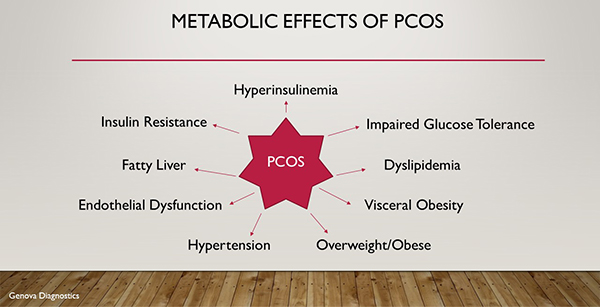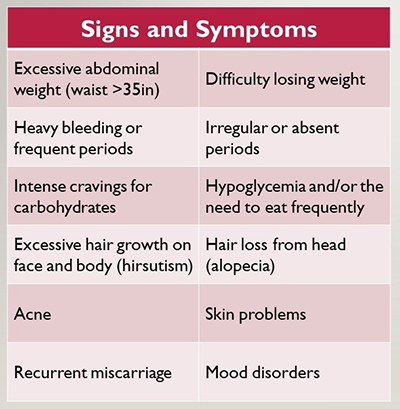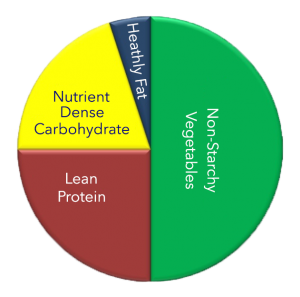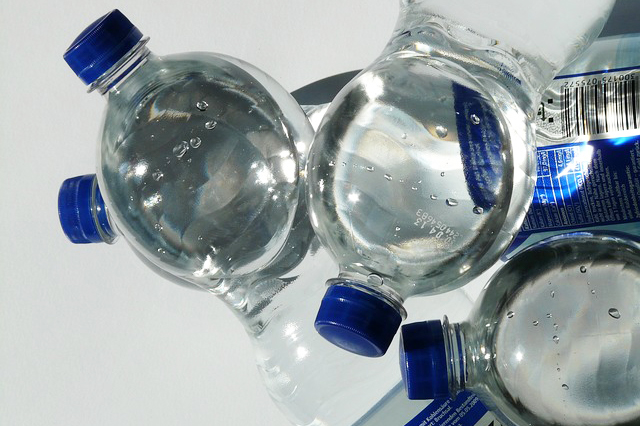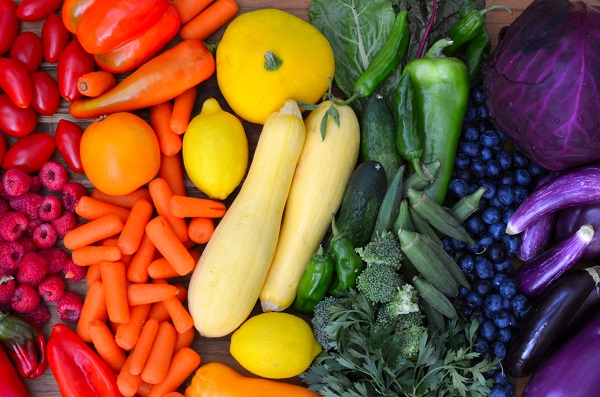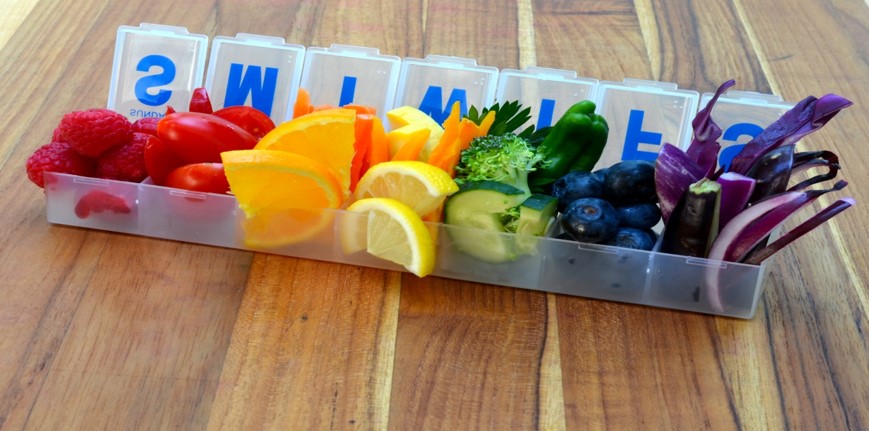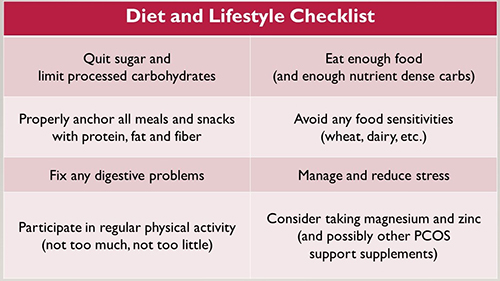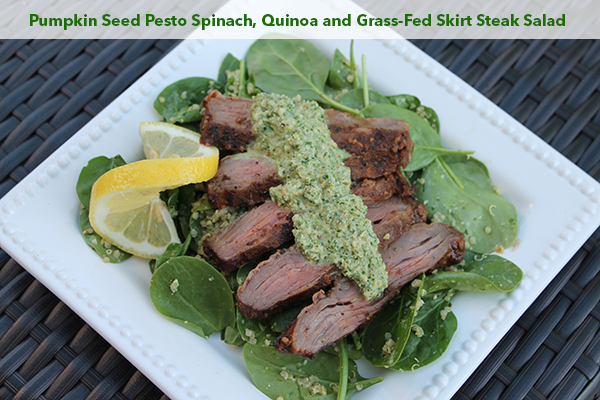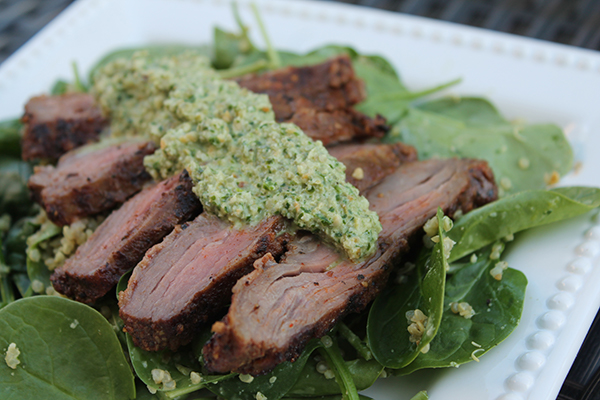Polycystic Ovary Syndrome (PCOS) is the most common endocrine disorder in women of reproductive age. Many believe it’s simply an ovarian condition, but that couldn’t be farther from the truth. Instead, PCOS is a whole-body hormone condition that affects the ovaries. Hormones are the problem, ovaries are the victims.
What is PCOS?
Despite the misleading name, polycystic ovaries are not specific to PCOS and can actually occur in any woman (and do about 25% of the time). There is controversy over the exact diagnostic criteria for PCOS and there are different ways to make the diagnosis, but according to the Androgen Excess and PCOS Society, you qualify for PCOS if you meet ALL of the following criteria:
- Irregular periods OR polycystic ovaries on ultrasound (polycystic ovaries are not a requirement and may or may not be present)
- High androgens (i.e. testosterone, DHEA-S) on a blood test OR symptoms of high androgens (i.e. facial hair, acne, male pattern balding)
- Other reasons for high androgens have been ruled out.
To cut through some of the medical jargon, PCOS is a failure to ovulate regularly and androgen excess.
#PCOS isn't just a period problem, it's a whole-body hormone condition! Follow this 6 Step Protocol to take back control of your PCOS today! #saslife Share on XPCOS Symptoms
Below is a list of potential signs and symptoms associated with PCOS. Every woman with PCOS is unique so you may experience some or all of these symptoms (or have additional ones not listed).
The good news is many of your PCOS associated symptoms can be alleviated and/or managed with diet and lifestyle changes! But again, PCOS isn’t just a period problem and is a whole-body hormonal condition that can last a lifetime, past reproductive age and into menopause. If left untreated, it can increase your risk for other health conditions such as:
- Infertility
- Cardiovascular disease
- Diabetes and gestational diabetes
- Metabolic syndrome
Follow the Roots!
In order to get results from natural approaches, you have to dig deeper and address your underlying drivers of PCOS which can include some or all of the following:
- Insulin resistance
- Sex hormone imbalance
- Inflammation
- Stress
- Gut health imbalance
Inflammation
Chronic inflammation is more than just pain and redness, it’s about whole-body communication and is a key piece to the PCOS puzzle.
Inflammation disrupts hormone receptors, suppresses ovulation and stimulates the adrenal glands and ovaries to make more androgens.
Each component of the following 6 Step PCOS Protocol works to support a healthy inflammatory response which is essential in truly addressing and alleviating the symptoms associated with PCOS.
6 Step PCOS Protocol
1. Nourish Your Body with Whole Foods
Be careful to not eat too few carbohydrates or calories. This stresses the body and disrupts hormones, increasing fatigue and possibly exacerbating PCOS symptoms.
Optimize your weight. Not all women with PCOS are overweight, but if you are, moderate weight loss can improve PCOS-related symptoms.
Get Off the Blood Sugar Roller Coaster!
- Protein, fat and fiber- the trifecta for blood sugar management
Opt for Nutrient Dense, Low Glycemic Foods:
- Incorporate lots of colorful fruits and vegetables (organic when possible)
- Aim for 2-3 servings of omega-3 rich fish per week (wild salmon, sardines, mackerel, herring)
- Aim for ½ plate worth of colorful non-starchy vegetables and balance the rest of the plate with adequate:
- High-quality protein (grass-fed, pasture raised meats when possible)
- Healthy fats (raw nuts and seeds, avocado, cold pressed olive oil)
- Nutrient dense, whole food carbohydrates (sweet potatoes, quinoa, whole fruit)
Limit or Avoid:
- Processed carbohydrates (white rice/bread/pasta, chips, pretzels, pastries, etc.)
- Added sugar
- Artificial sweeteners
- Oxidized fats, industrial seed oils (hydrogenated oils, soybean/corn/cottonseed oils, etc.)
- Caffeine (from all sources, not just coffee)
- Alcohol
2. Exercise
Regular exercise improves insulin sensitivity and metabolism. Balance is the key! Too much exercise can actually worsen PCOS, so start simple and incorporate a variety of cardio, strength training and flexibility activities.
3. Manage Stress
Chronic stress triggers your body to dump MORE sugar in the blood, adding to the vicious cycle of insulin resistance while also robbing your body of ‘ingredients’ needed to make sex hormones.
Rewrite your relationship with stress. Have a variety of stress management tools in place such as meditation, biofeedback, yoga, deep breathing or even play, and consider acupuncture.
Master your sleep. Inadequate sleep disrupts hormones and ovulation. Aim for 7-9 hours nightly.
4. Reduce Toxins
Do the best you can to reduce overall toxin load (you can’t eliminate them all!). Pay attention to food quality (organic, grass-fed, pasture raised when possible), limit plastics, choose cleaner personal care products (toothpaste, shampoo, etc.) and avoid “fragrance.”
Check out the Environmental Working Group (EWG) for guides on everything from produce to sunscreen.
5. Optimize Gut Health
A healthy gut removes excess estrogen and other waste from the body.
You need to poop daily! Be sure to address any issues with constipation and get things moving!
Build a Better Microbiome:
- Avoid foods that you react to (wheat, dairy, etc.)
- Minimize processed foods and artificial sweeteners
- Eat for diversity, eat the colors of the rainbow!
- Consume fermented foods regularly
6. Supplement (as needed)
Food first, supplements second! Start with a high-quality multivitamin or prenatal vitamin and then add other nutrients and supplements as needed.
The following nutrients are key players in managing PCOS. Include plenty of these in your diet and supplement if necessary:
- Magnesium: Better known as the "miracle mineral for periods"! Food sources include beans, greens, grains, nuts and seeds. If you need additional magnesium, choose a high-quality magnesium glycinate supplement.
- Zinc: Another miracle mineral and the second most recommended supplement for period problems. Food sources include oysters, grass-fed red meat, nuts, pumpkin seeds and sesame seeds. If you need additional zinc, choose a high-quality zinc citrate or picolinate supplement (max of 30mg daily).
- Vitamin D: Have your levels checked and supplement if deficient. Your body can synthesize vitamin D from sunlight, but this is an unreliable source. Food sources include egg yolks, cod liver oil, salmon, mackerel, tuna and dairy products.
- Omega-3 Fatty Acids: We can’t forget about good ole omega-3s! The ever powerful anti-inflammatory agents EPA and DHA can be found in wild-caught salmon, sardines, mackerel or herring. Aim for 2-3 servings of these fatty fish weekly and/or take a high-quality fish oil supplement to boost EPA/DHA intake.
Additional PCOS support supplements MAY include:
- Inositol (combined myo- and d-chiro-inositol at 40:1, from supplements such as Ovasitol)
- N-acetylcysteine or NAC (from high-quality supplements)
This list is not intended to be a blanket recommendation. Everyone is different and needs a unique blend of nutrients and supplements. Before starting any new supplements, consult with a Registered Dietitian/Nutritionist to get a personalized recommendation.
Key Take-Aways
PCOS is a complex condition and there isn't a quick fix or overnight cure. It can take 3-12 months of consistent lifestyle and dietary changes, along with other natural therapies, to bring about real change in the body. Be patient and believe in yourself! You can do this!
Resources:
Pumpkin Seed Pesto Spinach, Quinoa and Grass-Fed Skirt Steak Salad
Makes 6 servings
Pesto Recipe Adapted from: Whole Foods Market
PRINT RECIPE
This low glycemic recipe is packed full of PCOS supporting nutrients magnesium and zinc and is perfect to enjoy outside on a nice summer evening!
Ingredients
Skirt Steak Spice Rub
4-6 garlic cloves, minced
¼ cup olive oil
1 Tbsp salt
1 Tbsp ground cumin
2 tsp ground black pepper, or to taste
1 Tbsp paprika
1 tsp ground cinnamon
1 tsp onion powder
1½ - 2 lbs grass fed skirt steak, trimmed of silver skin
Pumpkin Seed Pesto (makes about 2 ½ cups)
2 cups unsalted hulled pumpkin seeds (green)
¼ - ½ cup water
¼ cup extra virgin olive oil
2 Tbsp fresh lemon juice, or to taste
3 cloves garlic
1 cup roughly chopped fresh cilantro
Sea salt and ground black pepper, to taste
1 cup quinoa, dry
1½ cups water or chicken stock
Fresh baby spinach, preferably organic
Directions
- Combine spice rub ingredients together in a bowl.
- Trim steak of silver skin, leaving most of the fat.
- Rub steak with spice mixture and let marinate for at least 1 hour or up to overnight in the fridge. (The longer it marinates, the more tender the meat will be.)
- Combine quinoa and water or chicken stock in a medium-sized saucepan, bring to a boil, cover and reduce heat. Cook for 15 minutes or until liquid is absorbed. Set aside to cool.
- While quinoa is cooking, place pumpkin seeds in a skillet over medium-low heat. Toast, tossing every 30-60 seconds, for 8-10 minutes or until lightly browned and popping a bit. Set aside to cool.
- Once cool, combine toasted pumpkin seeds in a food processor with water, olive oil, lemon juice, garlic and cilantro. Pulse until it forms a coarse paste (or to desired texture). Season with salt and pepper, to taste. Cover and chill until ready to use.
- Heat outdoor grill or stovetop grill to medium-high heat. Place steak on hot grill and cook 5-7 minutes on each side, or until desired doneness. Be careful not to burn the spice crust!
- Let steak rest for 5-10 minutes before cutting into thin strips. (Cut on the bias, against the grain).
- Combine cooked quinoa and a few generous handfuls of fresh baby spinach with 2 Tbsp pumpkin seed pesto.
- Top with sliced steak and a dollop of pumpkin seed pesto.
High Zinc Foods: grass-fed beef, pumpkin seeds, mushrooms, spinach
High Magnesium Foods: pumpkin seeds, spinach, quinoa

